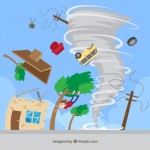“Ugh not another test!” That was one of the first things one of my students said to me this morning. In my head, I thought, “You ain’t kidding, kid!” Out loud though, I exclaimed, “This isn’t a test, it’s an opportunity to show your learning.” I felt that student perfectly illustrated the frustration with the focus on tests right now in education in America.
Last year, I began teaching a third grade SEI class in a new district. My first week at this school and I was giving my kids a pre-test which lasted 4 days. I gave that same assessment 4 more times last year at the end of each quarter. I also gave my students a state required language test which lasted three days. Immediately after that test, I administered the mother of all tests for third graders; AIMS which lasted nearly a week. As a teacher, I know it’s a struggle to include any form of instruction on testing days or testing weeks. Students are burnt out and tired. They need stress free activities those days. That being said, my students used 7 weeks of school for testing purposes and that doesn’t include typical classroom assessments.
7 weeks is nearly a full quarter of the year. If you think about a student in my class over the course of his education from kindergarten to 12th grade, he will test 91 weeks on this schedule. That is 22 months or nearly 2 and a half years worth of grade levels (With the assumption that an academic year is 9 months). How much academic growth could have happened in this student in those 2 and a half years?!
I am grateful that my district re-evaluated their testing requirements. Instead of 5 district assessments, we only do 4 and instead of 4 days, they only last two days. Therefore this year, I will be able reclaim nearly two weeks of instruction time. Over time this amounts to 5 months more of instruction for my students.
I know assessments are important and useful to measure growth of students and also the effectiveness of a teacher, a school, a strategy, or a curriculum. We couldn’t do our job without assessments. However, is that data worth the loss of significant amounts of instruction time? Are there more effective ways to administer a test or even better assessments to minimize the loss of instruction time? Could we find ways to share assessments that can show similar growth for multiple purposes? Are students in school to be assessed or to learn? My district is asking these questions but shouldn’t more leaders in education be asking these as well? How much testing is too much? When is enough, enough?









Comments 3
So, I’m running some numbers in my head. You lost seven weeks to testing which left your kids with only 29 weeks or 80% of a school year. That means that after six years they’ve only had five years of instruction and after twelve, when they’ll get their high school diplomas they’ll only have completed 10 years of instruction. (It’s worse, actually, because I rounded down to get the 80%).
So quantitatively that’s more than 20% few books read, math problems completed, science experiments, social studies debates, art projects…
Donnie-
You bring up a great frustration with American education. How did we become so “test driven”? I applaud your district for reducing the number of assessments and the duration, however not all districts are following suit. Sandy brings up an interesting piece of data – six years of education = 5 years of learning. We are so focused on analyzing data and pinpointing deficits that we fail to see how we are really impacting student learning.
Wow! These statistics are really staggering! I agree that well-created assessments are meaningful for teachers, but I think that today’s focus on accountability puts too much focus on what should be evaluated in the hands of others. Teachers have little to no voice in creating district and state assessments. Yet, most teachers are trained to conduct informal assessments of learning, portfolio assessments, and summative assessments. These teacher-crafted assessments from a well-trained teacher are valuable. Quick informal assessments after instruction provide teachers the opportunity to reflect on student learning and adapt the instruction for the following days. I wonder if teachers are using less informal assessments because their students already spend too much time testing (tests that are mandated by others instead of chosen by the teacher). I think that we have come to a place where we assess for a score instead of assessing to influence future instruction. To me, that is a really sad loss.
PS: Even sadder, all of these assessments make certain companies very rich while taking more money out of our school budgets.